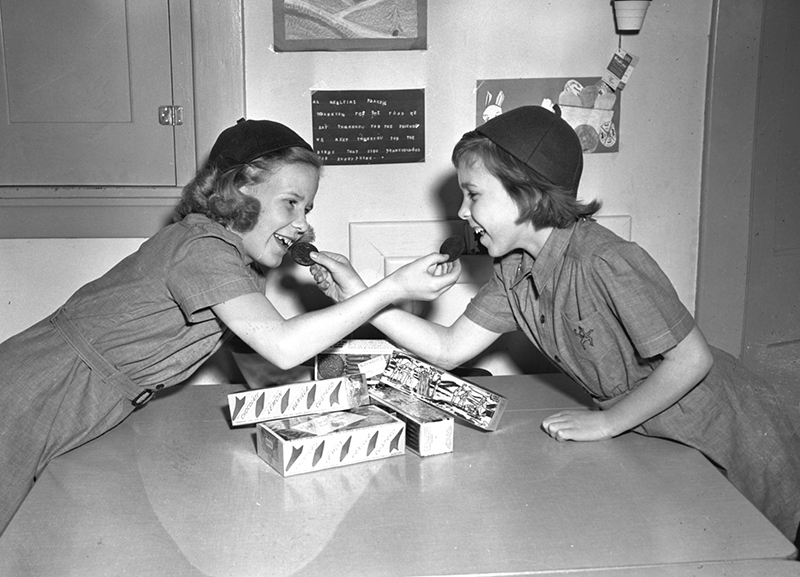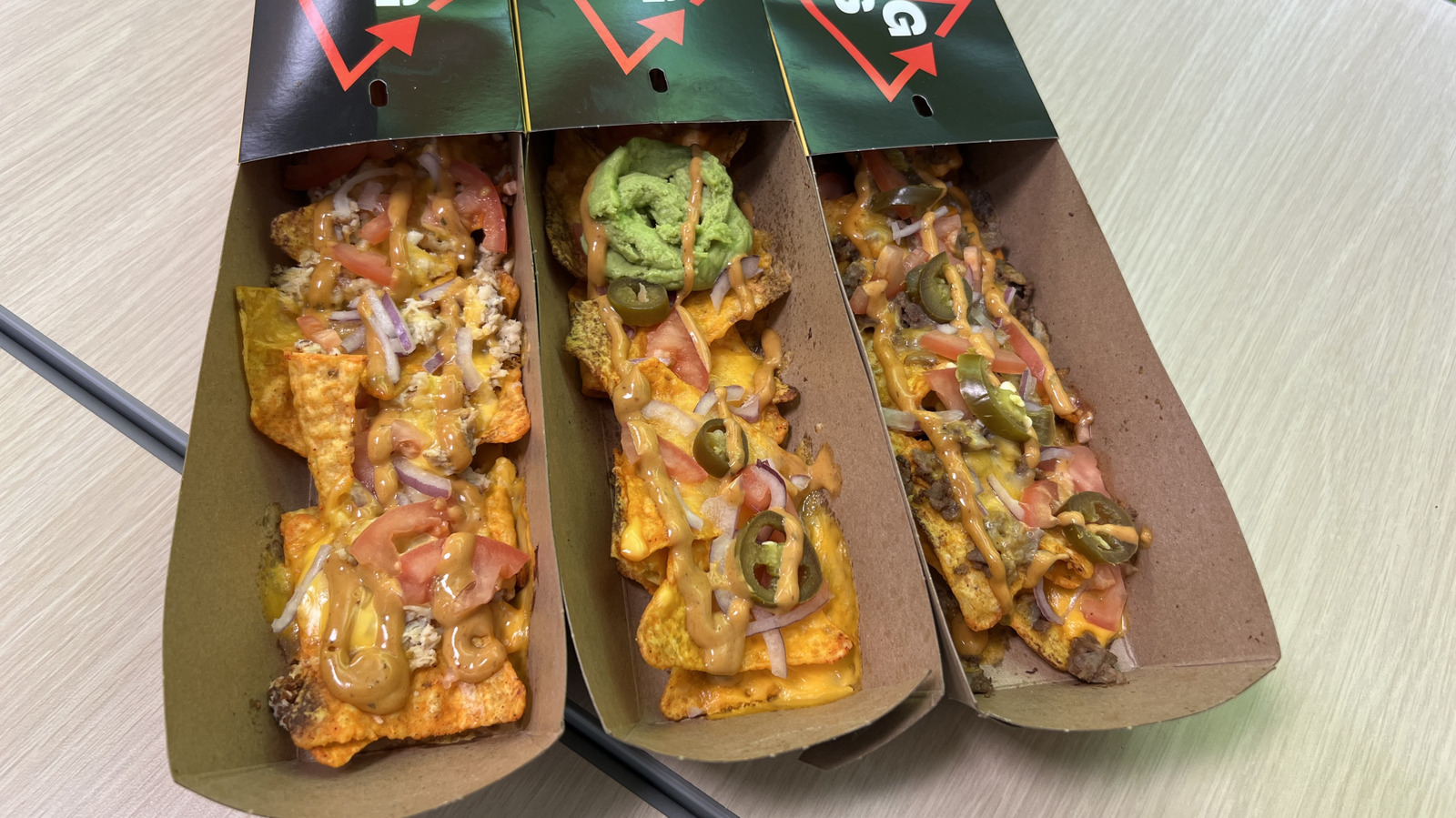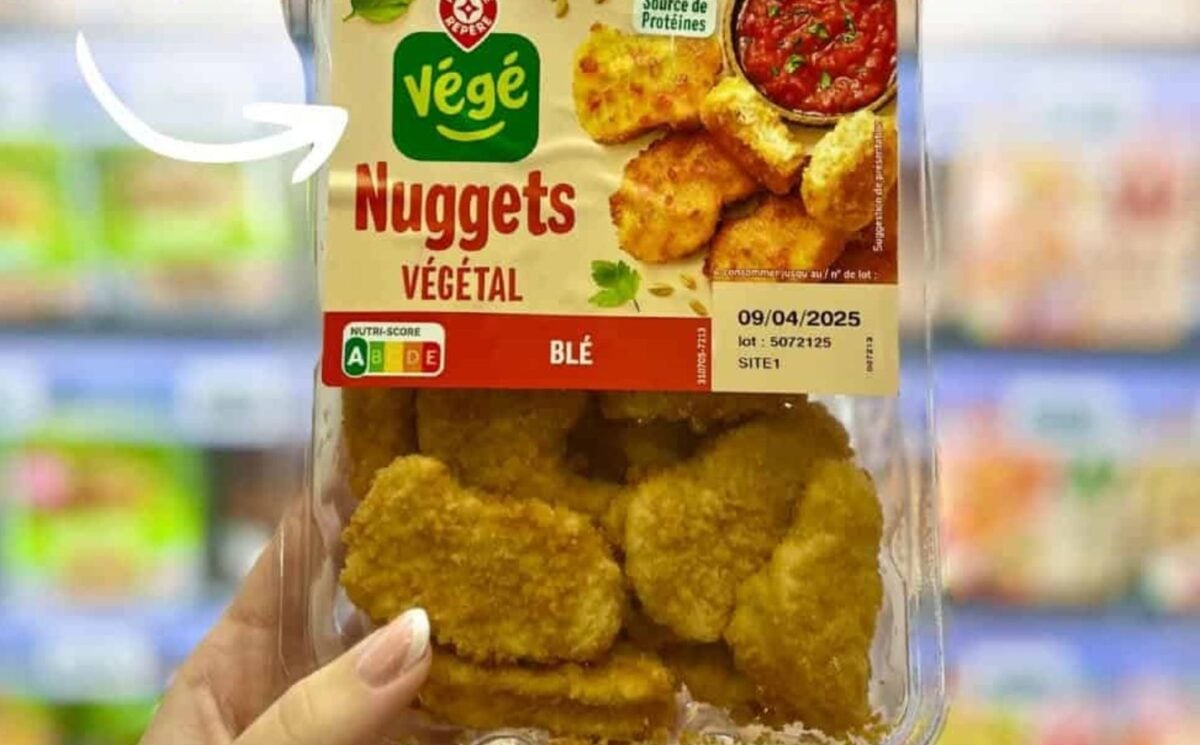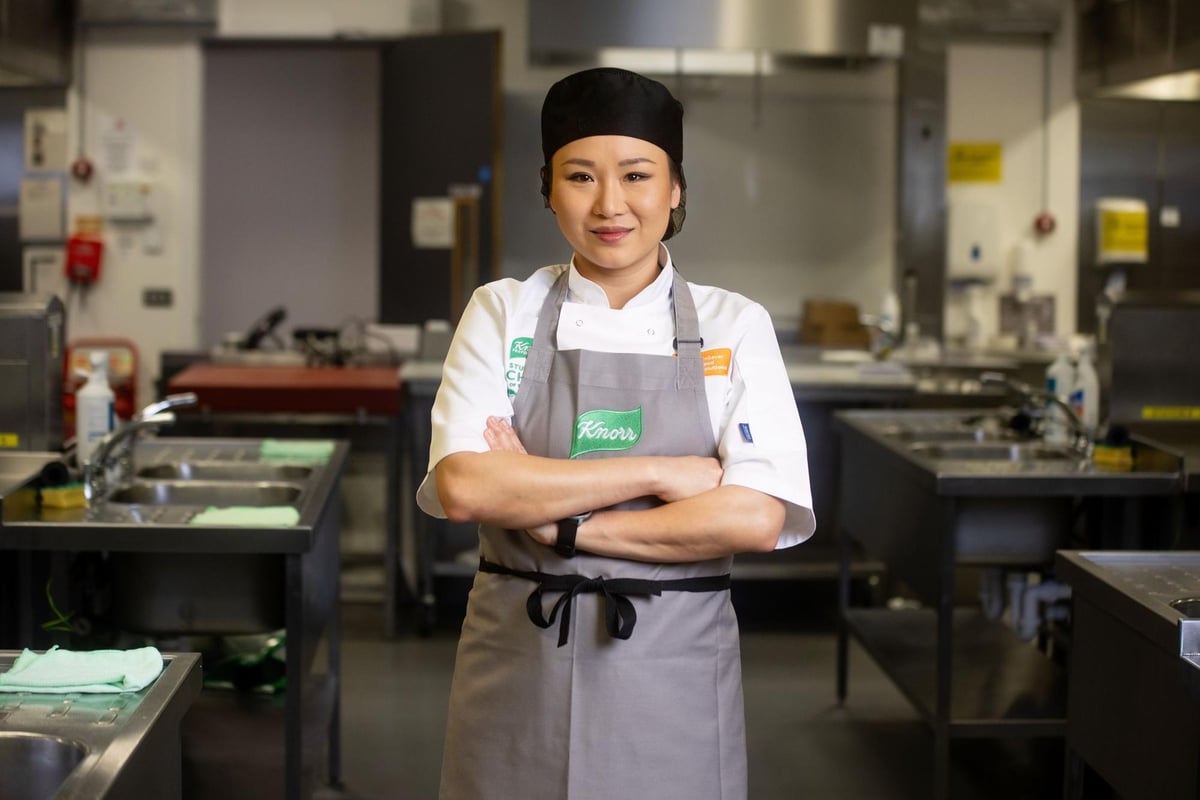
With the arrival of spring also comes another ritual of the season: Girl Scout cookie sales. Take a look at some of our photos of Girl Scout cookie sales from the 1950s and ’60s: Ingrid Ann Thompson, left, and Deborah Jane Wilcox, both of South Portland, give each other a taste of the two kinds of cookies sold by local Girl Scouts in a photo from 1956. The girls, both eight, were members of Brownie Troop 127 and proceeds from the sale went toward a new infirmary at Camp Cedar Cove in Litchfield and a play field and new camping equipment for the day camp in Scarborough.
Press Herald photo courtesy Portland Public Library Special Collections and Archives A billboard advertised Girl Scout cookies in 1958. Press Herald photo courtesy Portland Public Library Special Collections and Archives An unidentified Girl Scout in a photo from 1954 with cookies, including that perennial favorite: Thin Mints. Press Herald photo courtesy Portland Public Library Special Collections and Archives Brownies Laurie Reiman, left, and Jean Breton of the Yarmouth Girl Scout Neighborhood peer over heaps of cookies in a photo from 1960.

More than 185 Yarmouth Brownies and Girl Scouts joined the project that year. Press Herald photo courtesy Portland Public Library Special Collections and Archives Dominic Profenno, a Portland Department of Public Works employee, entered into the spirit of Girl Scout Week in 1960 when two Brownie Scouts caught him as he finished work on Congress Street. Ellen Romanoff, 9, hands Profenno a box of cookies while Kathy Swim, 9, left, waits her chance to sell him another box.
Press Herald photo courtesy Portland Public Library Special Collections and Archives See more photos of life in Maine from our archives here. Comments are not available on this story. Read more about why we allow commenting on some stories and not on others.
We believe it’s important to offer commenting on certain stories as a benefit to our readers. At its best, our comments sections can be a productive platform for readers to engage with our journalism, offer thoughts on coverage and issues, and drive conversation in a respectful, solutions-based way. It’s a form of open discourse that can be useful to our community, public officials, journalists and others.
We do not enable comments on everything — exceptions include most crime stories, and coverage involving personal tragedy or sensitive issues that invite personal attacks instead of thoughtful discussion. You can read more here about our commenting policy and terms of use . More information is also found on our FAQs .
Show less Send questions/comments to the editors..















